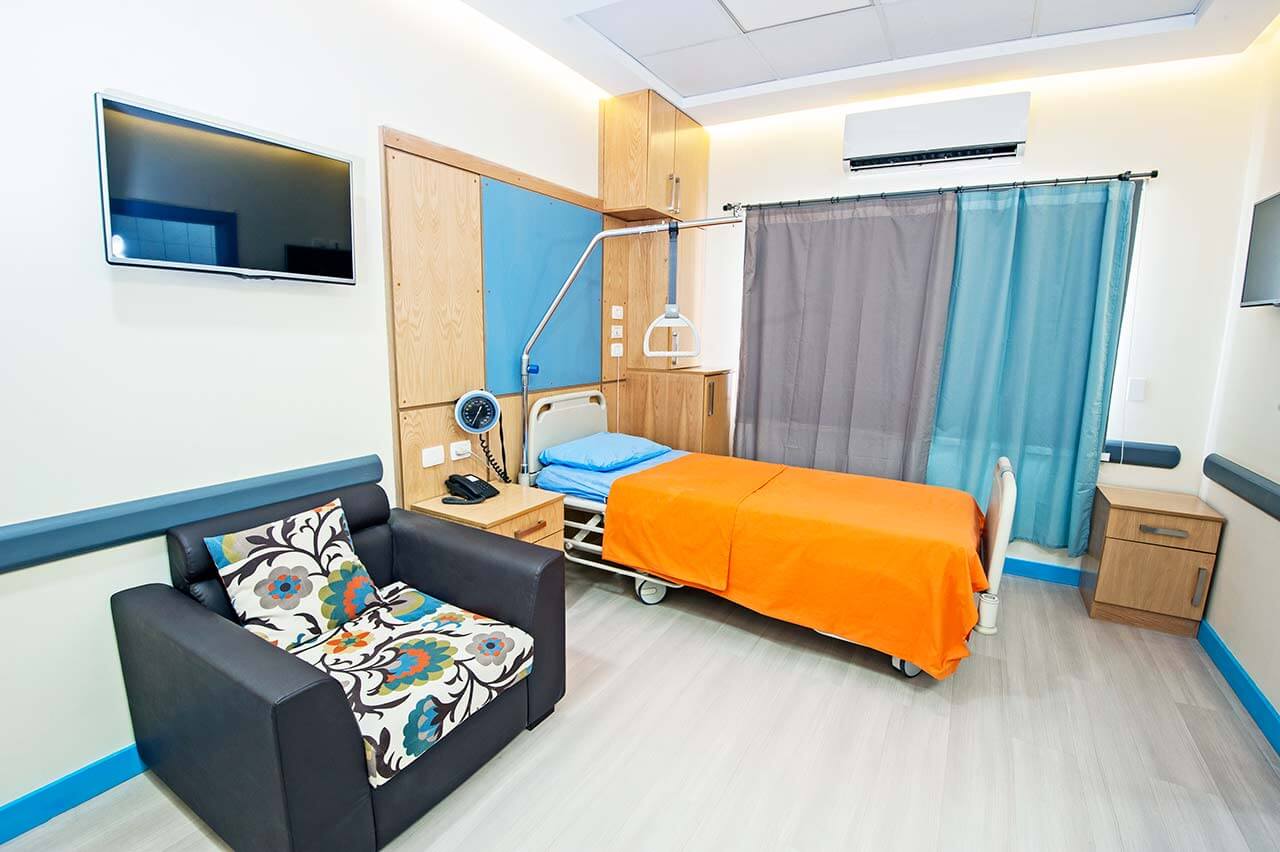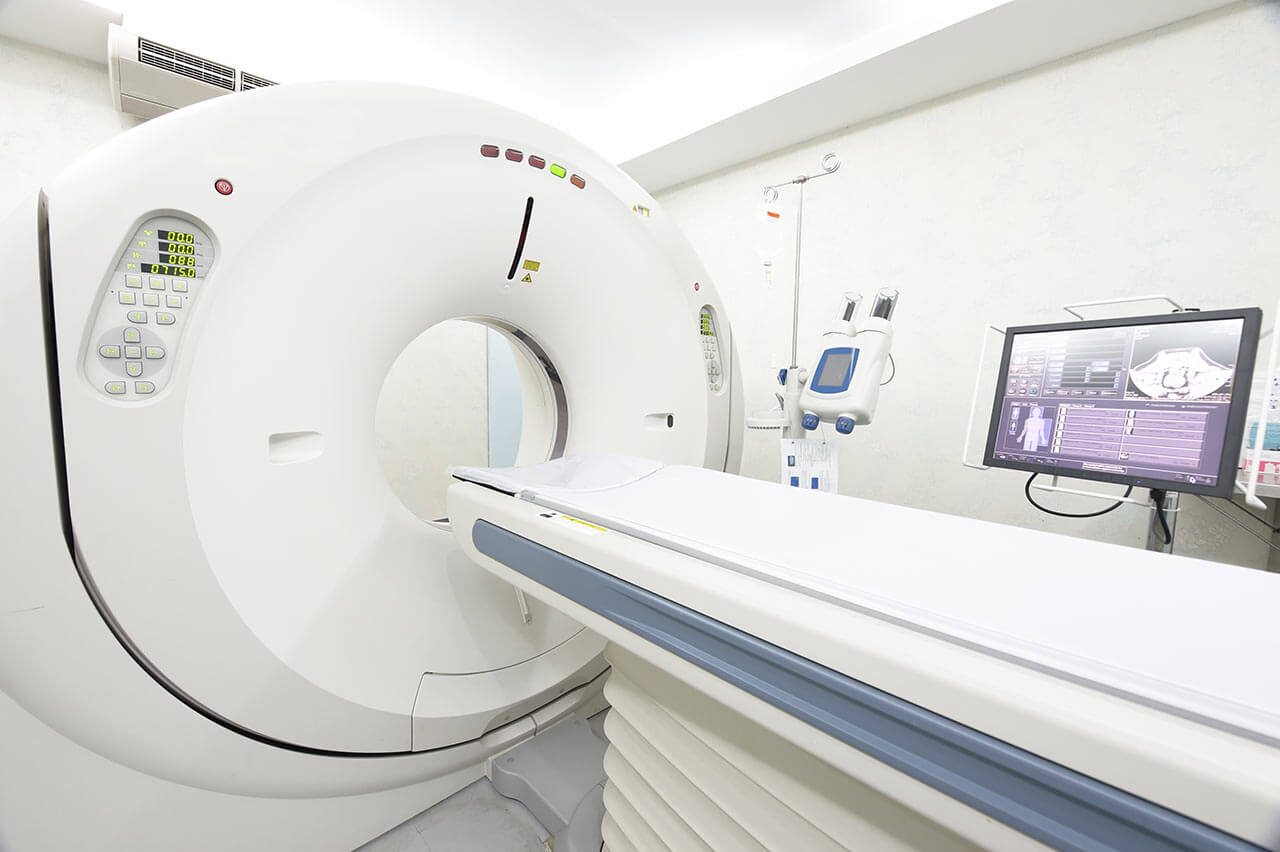
The program includes:
- Initial presentation in the clinic
- clinical history taking
- review of medical records
- physical examination
- laboratory tests:
- complete blood count
- general urine analysis
- biochemical analysis of blood
- TSH-basal, fT3, fT4
- tumor markers
- indicators of inflammation
- indicators blood coagulation
- ophthalmologic examination
- CT / MRI of the head
- brachytherapy
- symptomatic treatment
- cost of essential medicines
- nursing services
- elaboration further recommendations
Required documents
- Medical records
- MRI/CT scan (not older than 3 months)
Service
You may also book:
 BookingHealth Price from:
BookingHealth Price from:
About the department
The Department of Ophthalmology at the Bundeswehr Hospital Berlin offers accurate diagnostics of pathologies of the visual organ, as well as effective conservative treatment of diseases of the eye and its appendages. For these purposes, the medical facility has advanced equipment: a rotating HD camera for examining the cornea, devices for diagnosing fundus pathologies and measuring intraocular pressure, systems for examining visual fields, performing pachymetry, Heidelberg retinal tomography, optical coherence tomography, etc. The department has unique experience in the correction of visual defects using laser technologies and intraocular lens implantation. Prior to starting any therapy, doctors study the possible risks and choose the best treatment option adapted to the patient's needs and wishes. The department is headed by Dr. med. Detlef Deiermann.
Patients often come to the department with suspected refractive errors, the most common of which are myopia, hyperopia and astigmatism. The specialists examine the patient's eye and assess visual acuity, after which they select the optimal type of refractive error correction. In most cases, the doctors select glasses or contact lenses for the patient. If these methods are not suitable, laser eye surgery becomes an option of choice.
The department is equipped with modern laser technologies, including an argon laser and a YAG laser. Argon laser systems can achieve an effective result in the treatment of retinal vein occlusion and retinopathy.
Some eye diseases can affect other organs and anatomical structures of the human body, so the department's specialists cooperate closely with the Departments of Internal Medicine, Otolaryngology, Neurology, Neurosurgery and Dermatology, thereby providing their patients with interdisciplinary medical care.
Thanks to unique qualifications, state-of-the-art equipment and an interdisciplinary approach, the department's ophthalmologists manage to improve the patient's vision even in complex clinical cases or prevent the progression of the pathology, thereby preserving the patient's vision.
The department's diagnostic and therapeutic range of services includes:
- Diagnostics
- Optical coherence tomography (OCT) to visualize retinal layers, especially in glaucoma and macular degeneration
- Heidelberg retinal tomography for the analysis of optic nerve fibers in the advanced diagnostics of glaucoma
- Digital image analysis and photo documentation of the anterior and posterior segments of the eye, corneal measurement using a special high resolution camera (Pentacam HR)
- Visual field testing (computer-assisted and manual perimetry)
- Twilight vision, night vision and eye sensitivity to light testing, as well as an assessment of color vision using an anomaloscope and color charts (Ishihara/Velhagen/Farnsworth)
- Intraocular pressure measurement (Goldmann tonometer, PASCAL Dynamic Contour non-contact tonometer)
- Ultrasound scanning, ultrasound biomicroscopy, pachymetry (corneal thickness measurement)
- Diagnostics of strabismus and eye movement disorders
- Special vision diagnostics for pilots, divers, sports boat drivers, allowing to obtain a certain category of driving license
- Treatment
- Correction of myopia and farsightedness, including age-related ones, astigmatism
- Laser therapy: argon laser and YAG laser
- Eyelid and corneal outpatient surgery (intraocular surgery, such as retinal or cataract interventions are not performed in the department)
- Selection of the proper lens shape with computerized corneal measurement
- Specialized consultations on refractive eye surgery, glaucoma therapy, contact lenses
- Other medical services
Photo of the doctor: (c) Bundeswehrkrankenhaus Berlin
About hospital
The Bundeswehr Hospital Berlin enjoys a reputation as one of the leading medical facilities in Germany, where patients receive top-class medical care corresponding to the high standards of European university medicine. The medical center is an academic hospital of the Charite University Hospital Berlin – the largest and the most reputable in all of Europe. The main clinical focuses of the medical facility include emergency care, traumatology, urology, internal medicine, surgery, neurosurgery, neurology, nuclear medicine and others. The hospital offers 15 specialized departments, whose medical teams guarantee excellent treatment results, safety and an individual approach to their patients.
The hospital's staff consists of more than 1,100 competent employees. They work hand in hand to provide their patients with comprehensive and the most effective treatment. Of paramount importance is an individual approach to each patient and his clinical case. The specialists are always open to a dialogue with their patient, tell about the specificities of the upcoming treatment and its expected results. Whenever required, it is possible to involve experienced psychologists in the therapeutic process, who will help the patients to get rid of depressive states and set themselves up for a favorable treatment outcome.
The hospital has at its command state-of-the-art technical resources: equipment for minimally invasive interventions, diagnostic and therapeutic endoscopic procedures, navigation systems, advanced surgical microscopes, various laser devices, imaging systems for the accurate examinations and percutaneous interventional procedures.
The hospital has a quality management system, thanks to which it can strictly control the quality of patient care and other internal processes. In addition, the healthcare facility became the first Bundeswehr hospital, which was awarded the KTQ® certificate (06.02.2006). The KTQ® certification is carried out every three years and the hospital always passes it successfully. And then in 2000, the hospital was certified in accordance with the DIN EN ISO 9001:2000 standards. These achievements testify to the outstanding quality of medical care and the leading position of the hospital in the healthcare sector.
Photo: (с) depositphotos
Accommodation in hospital
Patients rooms
The patients of the Bundeswehr Hospital Berlin live in comfortable single and double patient rooms. Each patient room is equipped with an ensuite bathroom with a shower and a toilet. The patient room furnishing includes a comfortable bed, a bedside table, a TV and a telephone. To ensure a pleasant hospital stay, here is a library with an excellent choice of audiobooks, magazines and games. There is also a beautiful park on the territory of the hospital where one can enjoy peace, clean air and beautiful nature.
Meals and Menus
The hospital offers delicious and healthy three meals a day: a buffet breakfast, a hearty lunch and a light dinner. Every day, patients have a choice of three menus. Vegetarian dishes are also available.
If for some reason you do not eat all the foods, you will be offered an individual menu. Please inform the medical staff about your dietary preferences prior to the treatment.
Further details
Standard rooms include:
Accompanying person
Your accompanying person may stay with you in your patient room or at the hotel of your choice during the inpatient program.
Hotel
You may stay at the hotel of your choice during the outpatient program. Our managers will support you for selecting the best option.




